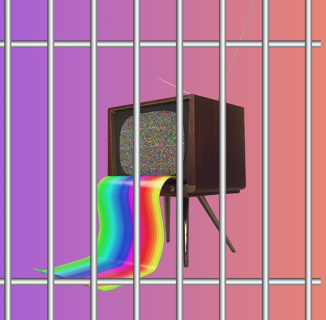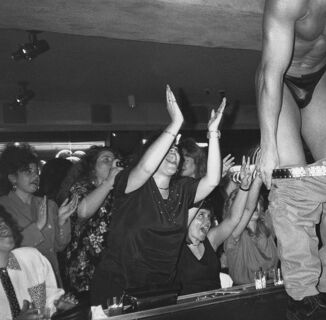Conservatives have touted the Supreme Court’s Masterpiece Cakeshop ruling as a victory for “religious freedom,” but an Arizona appeals court came to the opposite conclusion on Thursday.
In a unanimous ruling from the three-judge panel, Division One of the Arizona Court of Appeals cited Monday’s SCOTUS decision to argue that business owners’ sincerely held religious beliefs do not supersede local ordinances on anti-LGBTQ nondiscrimination. Judges claimed that giving people of faith the right to ignore public accommodations laws would constitute “grave and continuing harm.”
The Arizona bench subsequently cites Justice Anthony Kennedy’s majority opinion in its 3-0 decision.
“Our society has come to the recognition that gay persons and gay couples cannot be treated as social outcasts or as inferior in dignity and worth,” wrote Kennedy, a moderate who has authored many of the Supreme Court’s most progressive LGBTQ rights rulings. “For that reason, the laws and the Constitution can, and in some instances must, protect them in the exercise of their civil rights.”
“The exercise of their freedom on terms equal to others must be given great weight and respect by the courts,” he added.
The case, Brush and Nib v. City of Phoenix, concerned a Phoenix calligraphy studio represented by the Alliance Defending Freedom, the right-wing legal advocacy group which represented Masterpiece Cakeshop owner Jack Phillips in court. While Brush and Nib had yet to deny its services to gay couples (ala Phillips), it claimed the city’s nondiscrimination laws forced the business to violate its religious beliefs if same-sex partners were to seek out the company’s services.
The Arizona Court of Appeals did not find Brush and Nib’s claim that the public accommodations law infringes on its First Amendment Rights compelling, claiming the Phoenix ordinance “regulates conduct, not speech.”
“Accordingly, the conduct at issue is not the creation of words or images but the conduct of selling or refusing to sell merchandise—either pre-fabricated or designed to order—equally to same-sex and opposite-sex couples,” judges ruled. “This conduct, even though it may incidentally impact speech, is not speech.”
That’s when the appeals court again cited the Masterpiece decision.
“Further, allowing a vendor who provides goods and services for marriages and weddings to refuse similar services for gay persons would result in ‘a community-wide stigma inconsistent with the history and dynamics of civil rights laws that ensure equal access to goods, services, and public accommodations,’” read the court’s Thursday decision.
While the Supreme Court’s 7-2 verdict in Masterpiece Cakeshop v. Colorado Civil Rights Commission was largely viewed as a ruling “in favor” of Phillips, LGBTQ advocates say the Arizona decision shows the decision actually “reaffirmed [the] importance” of civil rights laws.
“[Masterpiece] did not dilute anti-LGBTQ discrimination protections,” said National Center for Lesbian Rights Legal Director Shannon Minter in a statement.
“With regard to race, sex, sexual orientation or any other protected trait, a business can decide what products it sells—but not to whom,” Minter continued. “Today’s Arizona appeals court decision correctly relied upon Masterpiece Cakeshop to ensure that businesses understand that they cannot turn people away from the products or services they provide because of who they are or take actions equivalent to hanging a ‘no gays allowed’ sign in the window.”
The American Civil Liberties Union, which defended gay couple Charlie Craig and David Mullins in the Masterpiece case, claimed Arizona’s decision was a correct application of what many have deemed a “narrow” ruling on the part of SCOTUS.
“The Arizona court today rightly ruled that businesses open to the public must be open to all and cannot discriminate against potential customers based on who they are: in this case, members of the LGBTQ community,” said ACLU Staff Attorney Joshua Block in a statement. “[…] This decision in Arizona helps affirm that discrimination has no place in businesses open to the public, nor in our Constitution.”
Masen Davis, CEO of Freedom for All Americans, agreed the Arizona court “got it right.”
“[T]here is no constitutional license to discriminate against LGBTQ people based on religion,” Davis said in a press release. “Religious freedom should be a shield, not a sword—it should never be cited as a justification for harming others.”
Since the Supreme Court’s ruling came down earlier this week, advocates argued that it was a procedural ruling not on whether Phillips had the right to discriminate against same-sex couples but whether his case had been deliberated fairly by the Colorado Civil Rights Commission.
The nation’s highest bench found the Colorado board had violated the “free exercise clause” by denying Phillips “neutral and respectful consideration” under the law, pointing to perceived anti-religion bias.
But despite the limited implications of the Masterpiece outcome, conservatives have continued to tout it as a victory for “religious freedom.”
In a Fox News interview conducted earlier this week, Phillips called it a “big win” for religious conservatives. As ThinkProgress originally reported, he told the conservative news network, “It now gives us a ruling that says that we can go about creating our works—our art—without fear of punishment from the government.”
Meanwhile, 20 states (and D.C.) have laws on the books outlawing discrimination against LGBTQ people in public accommodations.
Help make sure LGBTQ+ stories are being told...
We can't rely on mainstream media to tell our stories. That's why we don't lock our articles behind a paywall. Will you support our mission with a contribution today?
Cancel anytime · Proudly LGBTQ+ owned and operated
Read More in Impact
The Latest on INTO
Subscribe to get a twice-weekly dose of queer news, updates, and insights from the INTO team.
in Your Inbox













